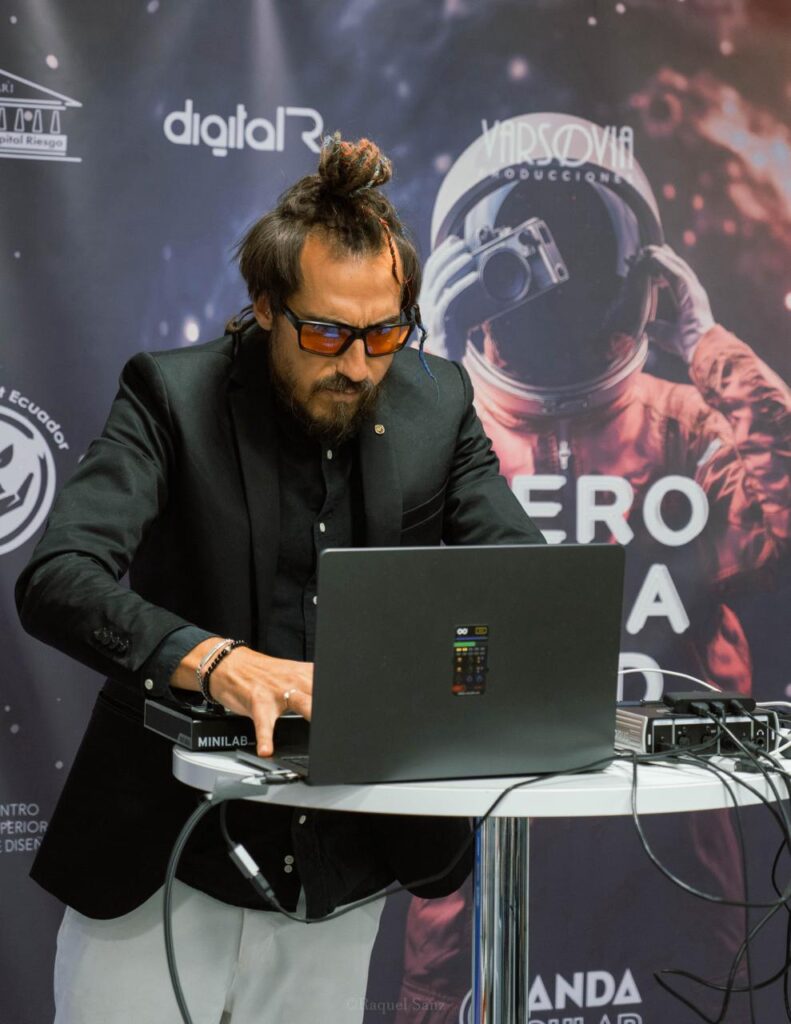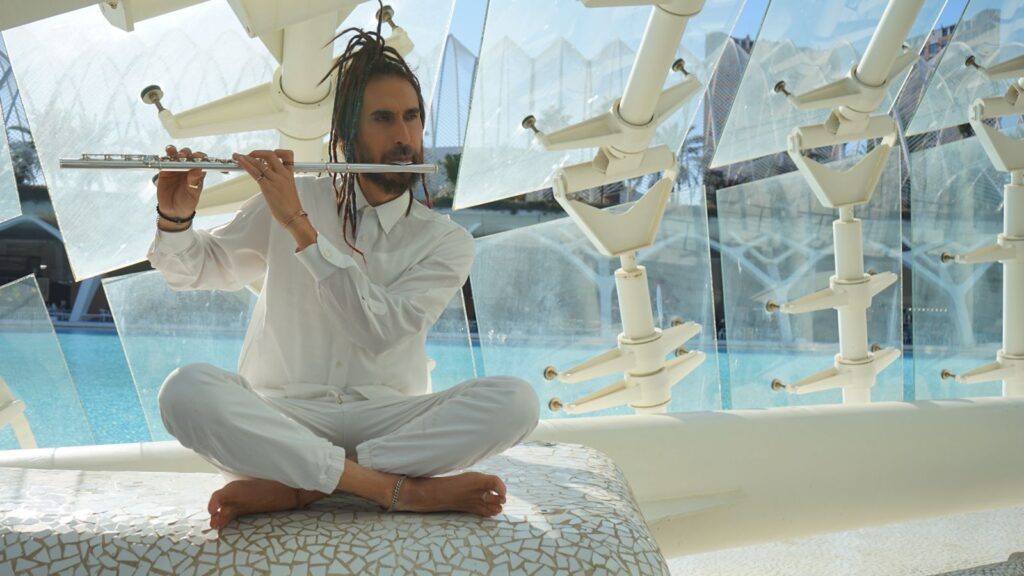Ask Josep Garcés, the founder of the music software company LiveLoop, if he is more of an engineer or a musician, this Spanish multi-instrumentalist will tell you that he is both and more.
“I’m a renaissance artist,” he says. “We can be engineers, artists, musicians, doctors, and painters, all at once.” In this sense, Josep is something like a modern-day Leonardo Da Vinci. Just imagine if Da Vinci had multicolored dreadlocks and a blockchain project ongoing in Dubai.
Josep is originally from Valencia and is currently living in a small village in the Spanish mountains. But in general he is of the world, a sort of global citizen. He has lived all over, in Romania, Denmark, the UK and the Netherlands. His company LiveLoop, is an Estonian entity and he is an e-resident, which means that after much vetting by Estonian authorities, he received permission to open and operate a company in the Northern European country, as if he was an Estonian too, taking advantage of its rich ecosystem of online services. He can thus run LiveLoop from anywhere in the world. One fun additional fact is that Josep has never stepped foot in Estonia.
He does plan to visit soon
So this renaissance artist has broken the barriers of geography and exists as a digital entity. But this is par for the course for Josep, because he has always been interested in breaking barriers. He first studied engineering at universities in Romania and Spain, and is a mechanical engineer. As a mechanical engineer he has worked at several companies, such as Rotterdam-headquartered Future Vibrations, which focuses on manufacturing custom 3D products. At Future Vibrations, Josep has been responsible for the whole creative process, from developing an idea through 3D drawing, manufacturing, marketing, and distribution of the resulting product.
While successful as a mechanical engineer, Josep also needed to express his emotional side. He found refuge in music, and pursued a master’s degree in live electronics in music at the Conservatorium of Amsterdam, from which he graduated in 2018. It was here that he created a platform called LiveLoop, which allows musicians to combine live electronics with acoustic instruments, synthesizers and music software.
Josep created LiveLoop because he was frustrated by the limitations of available looping platforms. “Existing tools were not good enough for live performances,” says Josep. “I have advanced musical ideas, and these were impossible to do with the existing software out there,” he says. He wanted to create polyrhythms, for example, or to add effects to every sound loop. “Nothing existed, so I created this software.”

He also created a company to commercialize the platform, but when the COVID-19 Pandemic struck, Josep relocated to Spain and found himself looking for ways to run a non-Spanish company. Like other Spanish entrepreneurs, he found Spanish bureaucracy cumbersome. He was on a date in Valencia when the lady across the table told him about Estonian e-Residency.
“We were having dinner and she told me about it,” Josep recalls. He applied for and received his e-Residency card, and set up his company LiveLoop as an Estonian entity in June 2022.
"Anytime I do any work now, or consulting services, wherever I work now in Europe, I use my Estonian company," he says.
He sees himself as an ambassador for the platform, showcasing it at his performances, but also believes that LiveLoop will be taught in the future. “All music schools will have this someday,” he says. “My live looping technique will be taught in schools and revolutionize the world of music.”
LiveLoop is just one project of Josep’s. He is also the CEO of a company called MusicMoon, which offers a blockchain-based platform that decentralizes the creation, distribution, and monetization of music via non-fungible tokens, or NFTs. And he continues to work as a mechanical engineer. He has also, since October, been secretary of Barcelona Music Tech Hub.
In all of these roles, he uses his engineering skills, he notes. Just as engineering projects are carried out in stages and assembled, music is composed in pieces and put together to form a whole. “Making loops, I assemble them together so that they sound good,” says Josep. “So the thinking process is very similar, these are different tasks.” He adds that while the processes are similar, engineering requires a logical mind, while music requires a sensitive, emotional mind.
As a modern-day renaissance artist, however, Josep has no problem switching between minds. “I am everything,” he says.

